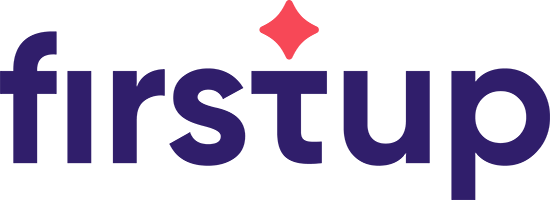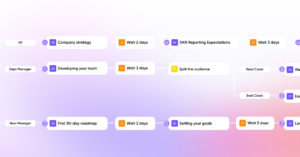Welcome to a new episode of Culture, Comms, & Cocktails.
I was in Vancouver this past week for IABC’s World Conference. One of the best things about the conference was reconnecting with others from the industry. And while I was there I took the time to record a couple of episodes.
The first is with Michael Nord, a member of IABC’s International Executive Board, and someone I genuinely enjoy seeing every year at the World Conference. Hope you enjoy our conversation about Michael’s journey from chapter leader to now the executive board of IABC.
“For me, the whole IABC journey from chapter leader to regional leader and now to treasurer of IABC, has been all about leadership development. It has been about giving back to the community that I get so much out of, but also for me it’s also role modeling. I think you get to be seen as someone who will take on some volunteer work and will probably spend long hours and late nights.”
-Michael Nord
We feature communications leaders every second and fourth Tuesday of the month. Don’t miss an episode of Culture, Comms, & Cocktails. Subscribe now wherever you listen to podcasts (Apple, Google Play, Stitcher, etc.)
Culture, Comms, & Cocktails Episode #11 Transcript
Chuck Gose: I know you through IABC and through World Conference, but what is your day to day role, Michael?
Michael Nord: I’m the director of client relations for a global consultancy company. We are about 90 people worldwide. We work out of the UK, Holland, and Houston Texas. And we help teams, managers, companies engage their employees in change. It can be anything from IT change, HR change, finance change or transformational change. And our consultants create plans, but also deliver tactics, and that’s what we do.
Chuck Gose: And this work I’ve seen recently, has taken you all over the world, including trips to the US.
Michael Nord: Yes.
Chuck Gose: But we are here in Vancouver. Have you been here before?
Michael Nord: No, first time.
Chuck Gose: First time in Vancouver, awesome.
Michael Nord: And not the last time.
Chuck Gose: Not the last time?
Michael Nord: No.
Chuck Gose: No, it is a remarkable city.
Michael Nord: It really is. I don’t know what it is and I didn’t know what to expect. And even though this city core where we are in, in the downtown area, is so modern, it still feels that it has roots in it’s past. And you have the water, you have the mountains, you have the harbor and then of course you have the Canadians who are lovely people. So it has all the best of everything.
Chuck Gose: Yeah I’ve compared it in the past to a weird mix of Denver and San Diego, but in Canada.
Michael Nord: Yeah, no I hear you. I definitely hear you. I love Denver. I think Denver with the backdrop of the Rockies is amazing. And also the downtown area of Denver is very accessible with the buses and everything. And the same here. I walk everywhere or I take public transport. I don’t take taxis. I want to be where the people are and want to be with where the people live here also. It’s nice, it’s really nice.
Chuck Gose: Have you kept track of how many World Conferences you’ve attended?
Michael Nord: I think it’s seven or eight.
Chuck Gose: Seven or eight?
Michael Nord: Yeah, because I had a break in between when I did something completely different than comms. I worked for the Danish government and there, there was not a wish for me to travel anywhere outside either Denmark or Holland. But otherwise, I’ve been here on a very regular basis.
Chuck Gose: So where is your home base?
Michael Nord: I live in Amsterdam. My office is in The Hague, which is the City of Peace, because of the Peace Palace and the criminal courts and everything. But we have an office in London where I quite often … And for us going to Lond is 45 minutes flight. So you can get there in the morning and you can be home at night if you really want to.
I try always to stay because I think this whole idea of traveling as much as I do, you need also to take a rest and not just get up very, very early and come home very, very late. You need to … And also it gives you that vibe. What is happening in London? What’s happening in Houston? What’s happening in Vancouver?
I came two days early because I wanted to get a feel of the city. I want to taste the food, meet the locals, taste the fantastic wine that this part of Canada offers, wow. Chuck I can tell you, I didn’t know that Canada has amazing wines like they do here.
Chuck Gose: And I’ve heard another part of BC, Kelowna, is another place to go visit for those wineries. And for the last several years, you’ve also served on the International Executive Board for IABC.
Michael Nord: Correct.
Chuck Gose: Why was it important to you, to volunteer at that level? What did you get out of that volunteer effort?
Michael Nord: I think for me the whole IABC journey from chapter leader to regional leader and now to treasurer of IABC, has been all about leadership development, has been all about giving back to the community that I get so much out of, but also for me it’s also role modeling. I think you get to be seen as someone who will take on some volunteer work and will probably spend long hours and late nights. And they are late nights I can tell you, sometimes because of the time difference where the board members are.
But I must also say that I get so much back. People sharing information. And most importantly, and I prove it everyday almost, is the network you get. That I could reach out to someone like you, someone else, because I’ve met them at a conference, I know them from a conference, I know what their topic and specialty is and if I need help I can reach out and say, “I have this challenge, what would you suggest I do?”
And the state of my career, people say, “Well, you should know it all.” No I don’t know it all. I think the speaker on Sunday, I don’t know all, but I’ll find out. And if a client says to me, “How do we do this?” And I don’t know it.
And I have the challenge right now. A client of mine said, “We’re going to use MS Teams.” All right, I spoke to the Microsoft people here at conference. But where do I go? Where do I find more information? Can you give me some hints and tips on what to go? So, that’s what I think the value of, not just attending, but also giving time and energy to the organization.
And I’ve seen, and you and I have almost been on the same journey, IABC has changed a lot in those seven, well 13 years that I’ve been a member. The first time that I was at IABC World Conference was New York, 2 000 people, I was blown away. I volunteered at the registration and I met so many people. And then the fantastic speakers. And then of course we’ve been through a downturn, we’ve been through internal, organizational and financial challenges. But I have been part of a team that have delivered and made sure that we come out on the other way. And I think we’ve come out stronger. We may be smaller than we were 10 years ago, but I think we’re stronger and I think the way we present and talk about ourselves has become much more clear and much more strong than before.
Chuck Gose: Yeah, volume does not always equal strength.
Michael Nord: Exactly.
Chuck Gose: When it comes to an organization or a community.
Michael Nord: Exactly, exactly.
Chuck Gose: And you’ve mentioned some of the things that you’ve gotten out of this volunteer journey for yourself. I know for me, attending World Conference, it is the world part of it, is what I get out of it. It is the, from my experience, if not one of, it’s probably the only true global conference. And I know that there’s some criticism that it’s always in North America, but that’s probably for other reasons. But it has been in Canada back to back years, where you do get to interact with colleagues from other parts of the world, of other walks of life and hear those challenges. Because even if a communicator works for a global business, they don’t always get to go visit those other parts of the world for a variety of reasons. So I think that part is great.
Is there anything else, let’s say from the IABC volunteer side or the global side? You mentioned you’ve been at the local leadership, the regional leadership, now the global leadership. What’s the best way for somebody to get started if they were interested in volunteering at IABC?
Michael Nord: So depending on if you are a member of a chapter or if you are a member at large, you can go to your chapter and every chapter always needs help. They need help either for a committee, a group or they would need help with people to step up to their annual elections for the board.
But we also have global committees and task force. And we actually do an open call every year. And so if there’s a topic that interests you, keep an eye out and put your name forward. It’s a great way of working on a specific topic with, what you just said, a global group of people where you, through video calls and using our intranet, work with a team that can be from Australia to Alaska. And you are part of that with your special interest area or in a task or at a committee where you think, “I want to learn something about this. Let me be part of it. Let me be the foot soldier and thereby learn from the generals.” And I think that’s a fantastic opportunity that IABC offers.
And of course, then there are the regions. The regions do an amazing job of organizing events, organizing professional development, but also building networks. And for me it is that whole network, how we connect with other colleagues around the world who do, maybe not exactly the same, but almost the same as we do.
And what you just said about the culture, I think you’re exactly spot on that we work, maybe for a global organization, but we don’t get that cultural flavor that we do through IABC. Because we’re here at World Conference in Vancouver, speakers from South Africa, speakers from Australia, from around the world that talk about how they see comms in their country or region and that gives us that flavor. And we recognize things that we think, “Oh yeah, I could use that.”
Chuck Gose: So let’s say, it hasn’t been announced yet where World Conference 2020 is, but let’s say we sat down at the World Conference and had another conversation like this. What would you like to see different? Or where would you like to see additional growth within IABC if we looked at it a year from now?
Michael Nord: I would like us to see bringing in more millennials, the younger generations to the conference. Whether that’s a matter of scholarships or pricing, I’m not sure. But I would also like to see more fun at the conference itself. I think we do a great job now with the hub, where you and I are sitting right now, where people have lunch and coffees and they interact with our sponsors and exhibitors.
But I also see conferences around the world, outside IABC, that try to do more fun things with light or with … We do some with the voting, but I think we could do even more that makes it more engaging and more fun and more memorable.
We talk a lot about, at the board level when we talk strategy, the Instagramable moment. And I think that is correct. If we can all take that one picture from one place we’ve been to or that one event we’ve been to, take that picture and say, “That sums up the feeling I had by attending World Conference in Vancouver.”
Chuck Gose: One of the topics that has come up a few times with other communicators I’ve interviewed is around professional development. And so often communicators wait for their companies to make that investment in themselves. And I see you’re shaking your head no, the podcast listeners can’t see that, but I can see that.
Michael Nord: No.
Chuck Gose: What’s your advice to that communicator not letting the company dictate their development, but them owning their own development and investing in themselves to possibly attend a conference like World Conference?
Michael Nord: I got the advice a couple of years ago from a woman who said, “Yes, I’m part of a professional development program with my company, but there are limits to what they will sponsor and pay for. So I put money aside in a bank account and I use that.” And I do the same. I attend events, I will sign up for online training. I also, and there is so much great free content out there, you are one of the deliverables, that you can just listen to wherever you are. Podcasts, webcasts, sometimes you may not make it, but they always send a link out to the recording and the slides. And I think at least one event I attend every week, just to keep abreast of what is going on with technology, in communications or even understanding where we fit in, in the big organizational structures. So there’s a lot you can do yourself and you need to own it yourself.
I think the IABC Academy is a great way. You don’t need to buy the whole package. You can buy the individual courses. And especially if you’re preparing for your certification, there might be topics you don’t know so much about, go to the academy and find that little topic and take the course. And they are affordable. And you can do it at your own pace which I think is important.
Chuck Gose: Yeah I have said, I think it’s a bit of a cop out when they say, “Well I can’t go, my company won’t pay for it.” Why is it your company’s responsibility? Now, some companies could take on the responsibility.
Michael Nord: Absolutely.
Chuck Gose: Of paying that. But we shouldn’t view it as the company’s responsibility. I’ve always had the view that I think if communicators paid for this themselves, I think they would take more ownership of their experience, versus somebody taking care of that for them.
Michael Nord: I agree with that. I certainly see that. I must say, I feel with Montreal last year and especially Vancouver this year, I feel a different vibe here, I feel a different energy in the rooms and in the conversations. The breakout sessions are packed.
Chuck Gose: They absolutely are.
Michael Nord: I had standing room only when I was running a session yesterday as a moderator. And I’m speaking tomorrow and looking very much forward to how many people. I know it’s the last session of the last day before the closing session, but still. But for me, it’s not about quantity, it’s about the quality and I really feel the quality here. I feel that the program advisory committee and staff has really done their best. Great content, great inspirational speakers, new thinking, out of the box thinking and at the same time back to our cause, stakeholder management, measurement, all these things that we all need to have in our toolbox. So yeah, that’s why I come here and I love it.
Chuck Gose: And speaking of quality, that’s a great segue to the last section of the podcast, which is talking about cocktails. We’ve had some great ones on the podcast so far. So what is your favorite cocktail or your favorite place to get a cocktail? And I have very high expectations from this answer Michael.
Michael Nord: All right, as you know I travel a lot, but I must say I love a good cosmopolitan. It has to be the right mix of sour and sweet. Not too sweet, not too sour, but have the right mix. It has to have that clear pink color so you can almost see through it. And I think the best place to go is in New York. I have a couple of bars that serve amazing cosmopolitans and I will go there just to have a cosmopolitan.
Chuck Gose: Very good. Well Michael, thank you for being on the podcast.
Michael Nord: A pleasure.
Chuck Gose: See, easy peasy.
This has been Culture, Comms, & Cocktails, internal comms served straight up. Thanks for listening and check out all our past recordings.
Related Stories:
Culture, Comms, & Cocktails: Live From FutureComms 2019
What Does Good Design Mean in Internal Communications
It’s All About Love in an all New Culture, Comms, & Cocktails Podcast
Better Internal Communications For Your Workforce – Now Is The Time
Download PDF



